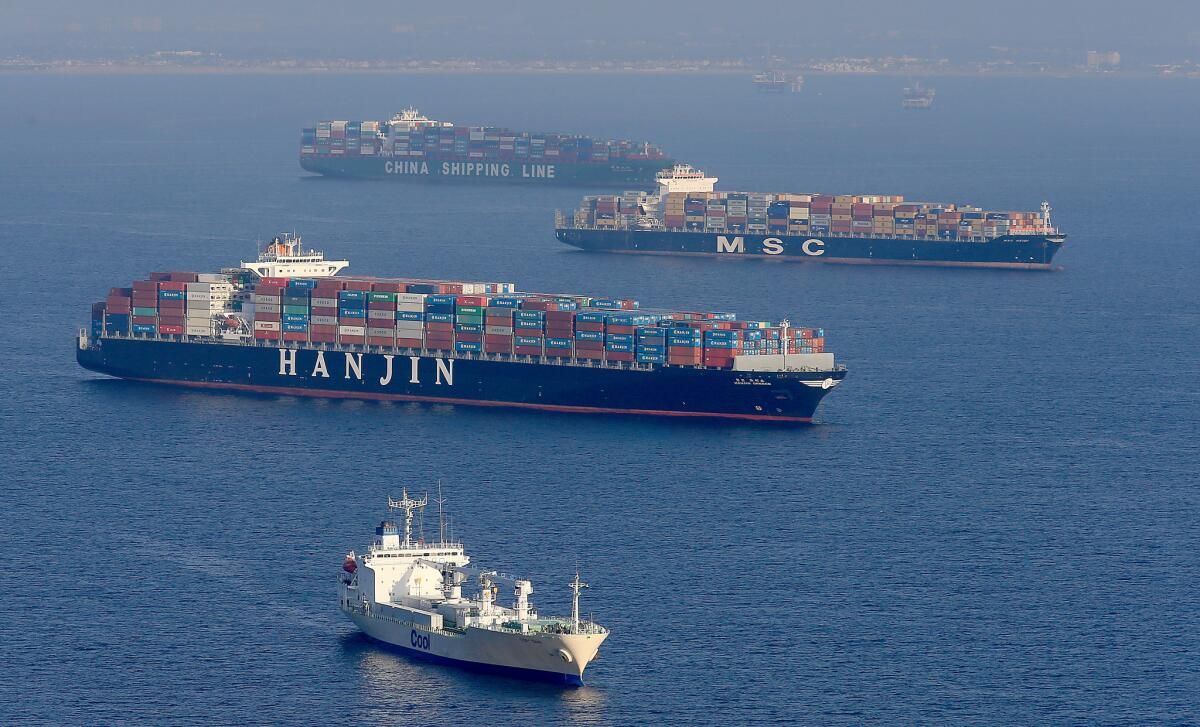Ports congestion hinders Southland recycling industry

- Share via
The congestion at the ports of Los Angeles and Long Beach is clogging the Southland recycling industry.
Recyclers throughout the region are scrambling to find extra space to house the massive pileup of paper, plastic and metals that are waiting to be exported on ships stuck offshore, unable to dock and unload, said Brett Jones, president of the Assn. of California Recycling Industries.
A big factor in the shipping traffic snarl is the stalemate between the dockworkers union and employers -- major shipping lines and terminal operators -- over a new labor contract.
Recycling companies ship thousands of tons of paper, plastics and metals to countries all over the world, Jones said.
Much of the lower-grade materials collected in Southern California find buyers only in Asian countries, especially China. Those lower-profit materials are destined for landfills instead of recycling plants if the stalemate doesn’t end soon, he said.
“China consumes the developed world’s scrap and raw commodities,” Jones said. “If you can’t get to the world’s largest consumer, then it becomes a problem.”
Jones also serves as director of sales and procurement for Los Angeles recycling firm City Fibers. Like other companies in the industry, City Fibers has been renting extra space since autumn to house the backlogged material.
The company usually exports about 10,000 tons a month, but that fell by about 40% in the last three months of 2014, Jones said. Declining sales, combined with extra warehouse costs, meant City Fibers lost money in the last quarter, he said.
“We are trying to look for other markets where we can, but it’s very limited,” Jones said. If the stalemate drags much longer, City Fibers may be forced to cut employee hours, he said.
Smaller recyclers in the Southland are facing an even more dire fate if the ports don’t start working again.
“There are a lot of companies not as large as we are who are struggling dramatically right now,” Jones said. “They could shut their doors if they can’t get their stuff out.”
Twitter @ByShanLi
More to Read
Inside the business of entertainment
The Wide Shot brings you news, analysis and insights on everything from streaming wars to production — and what it all means for the future.
You may occasionally receive promotional content from the Los Angeles Times.











